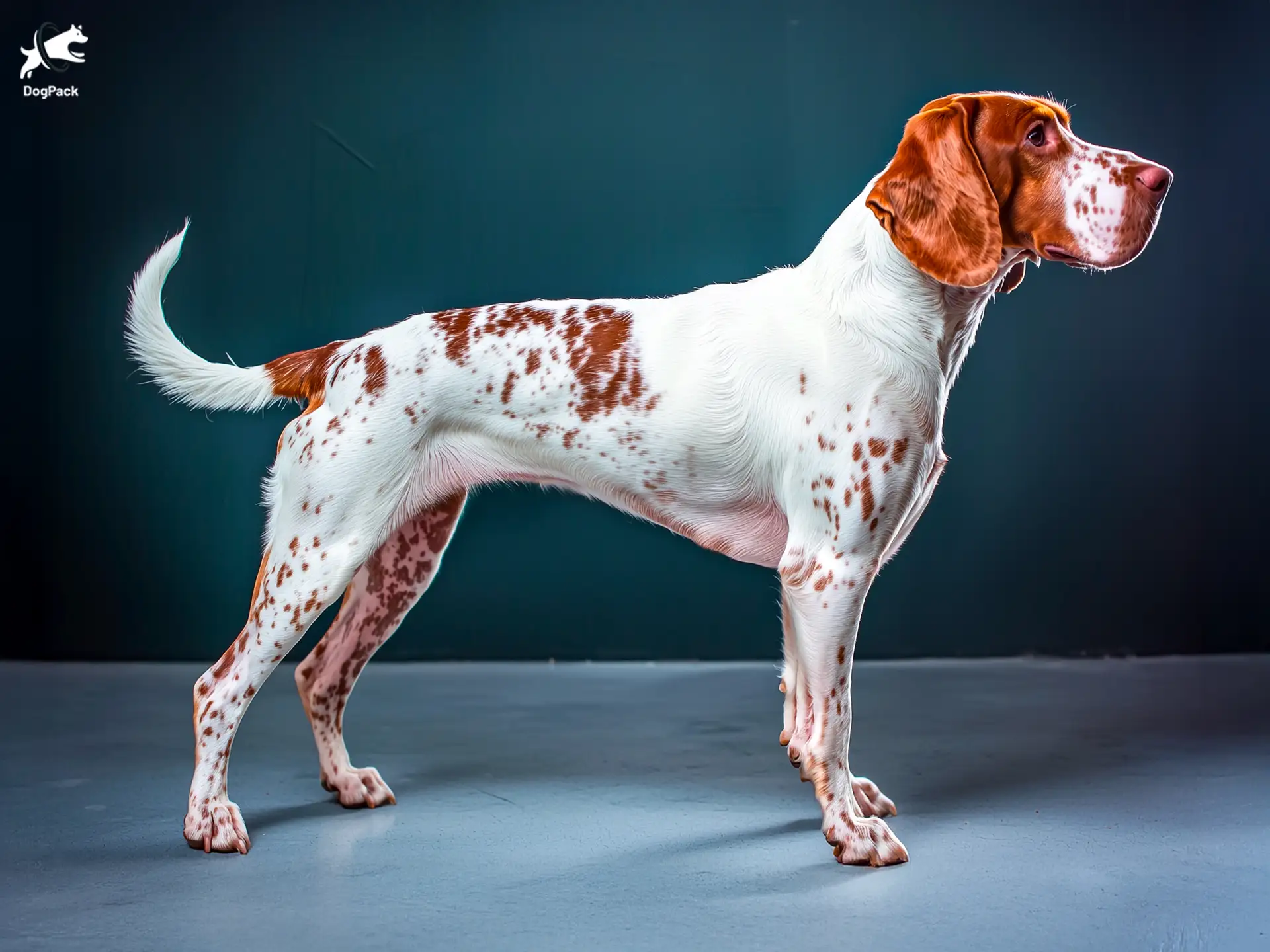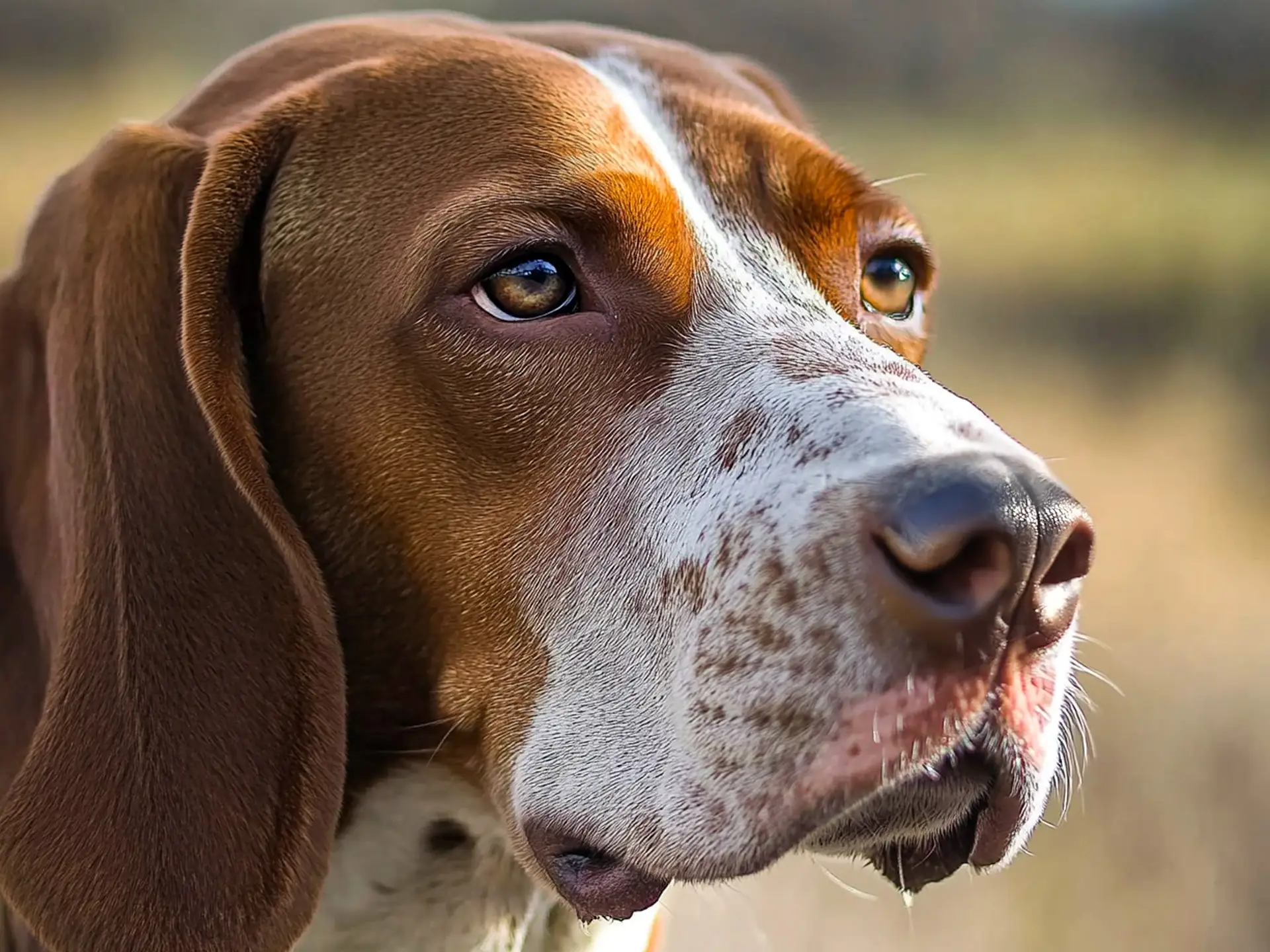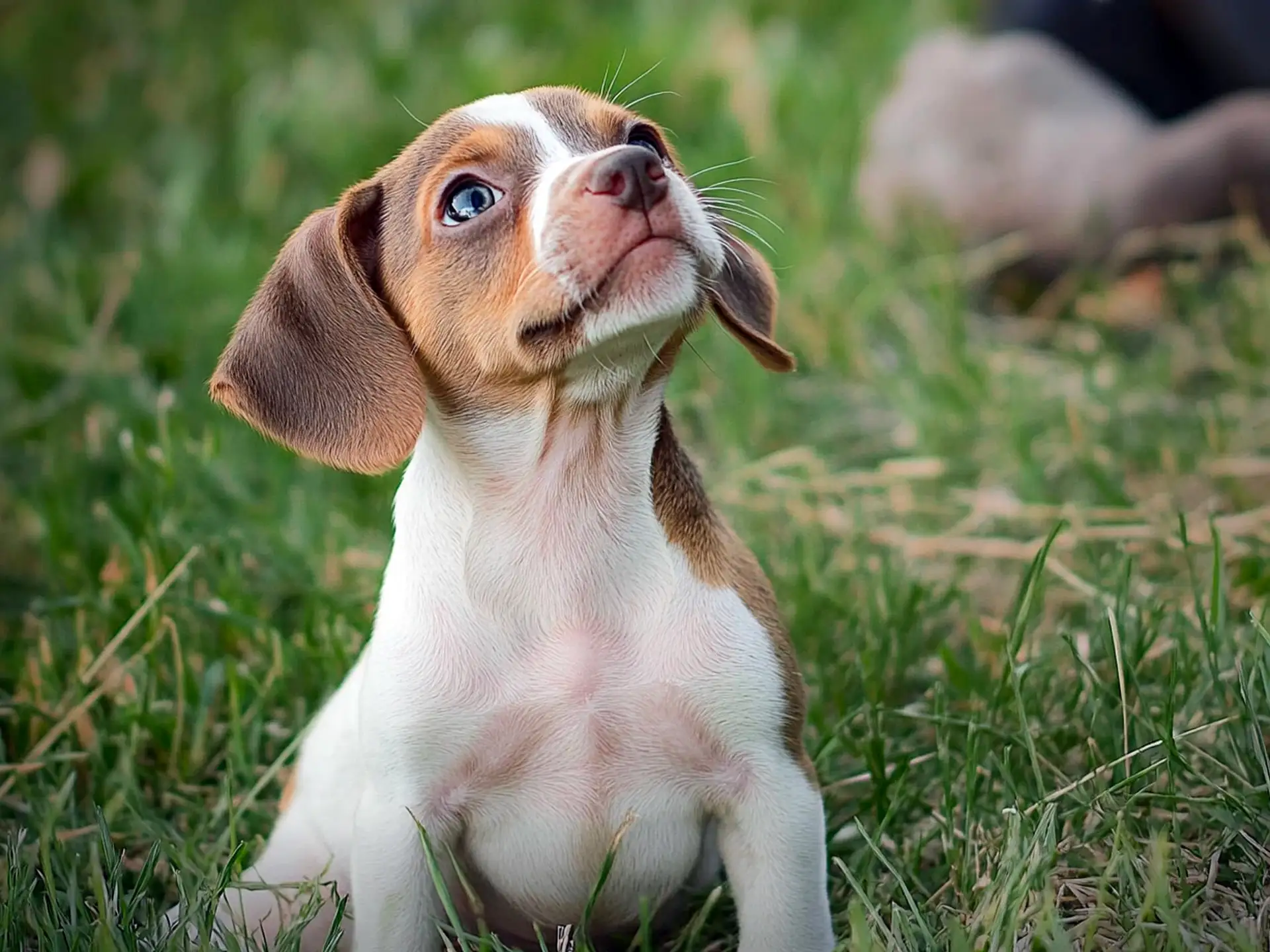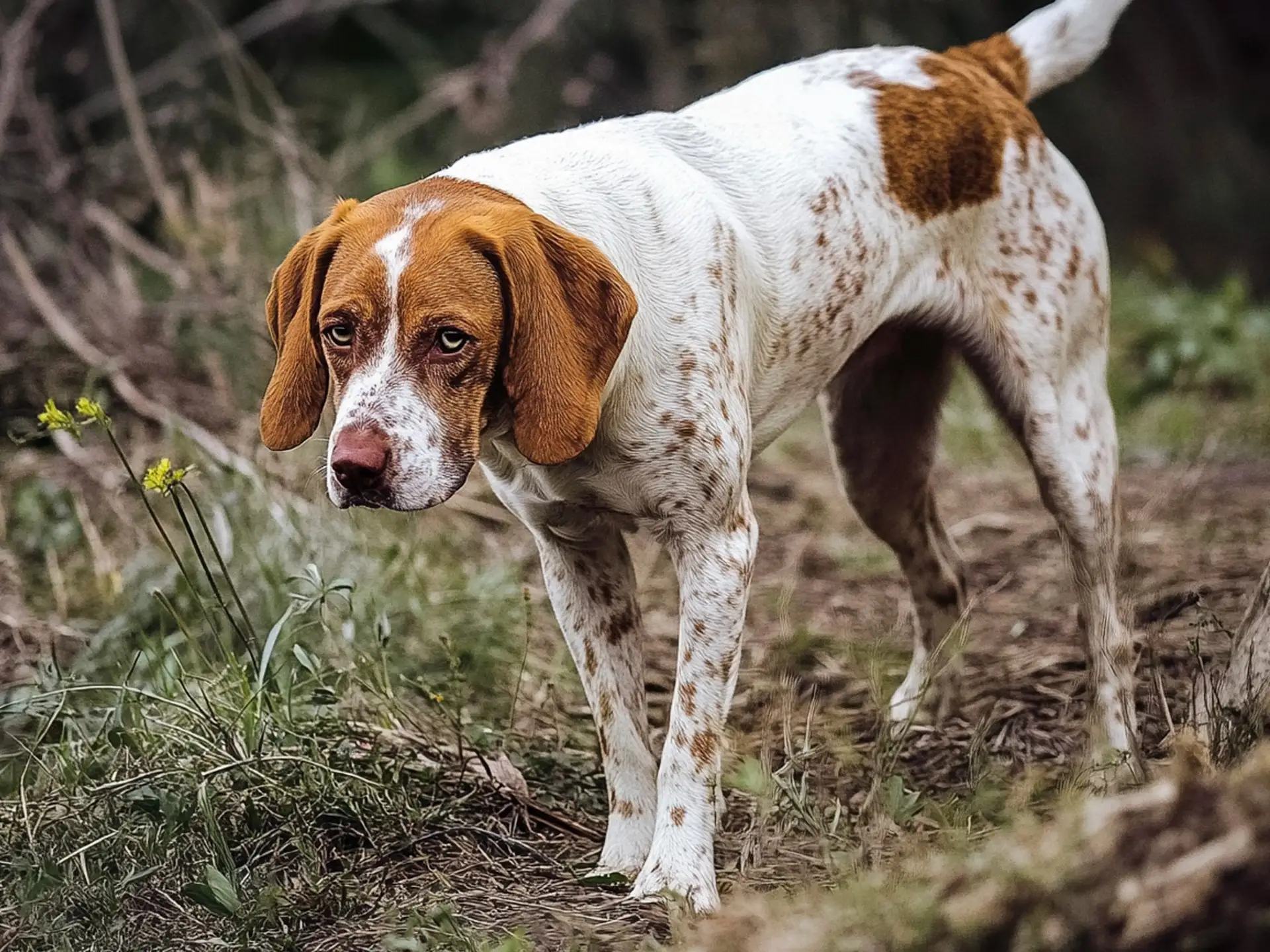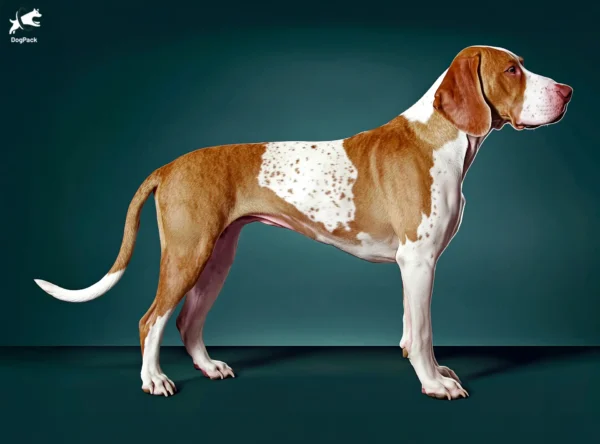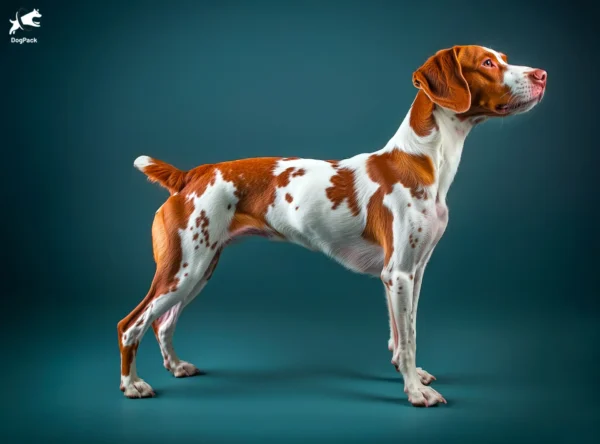Pachón Navarro Dog Breed Info & Overview
Meet the Pachón Navarro, a rare Spanish pointer famed for its distinctive split nose and unwavering loyalty. Originally bred for hunting, this medium-sized canine boasts sharp senses, a friendly disposition, and remarkable stamina. Whether tracking game or snuggling on the couch, its adaptability ensures it remains a cherished companion among dedicated enthusiasts worldwide.
Characteristics
Pictures
Breed History
The Pachón Navarro originates from Spain’s historic hunting traditions, dating back nearly 800 years. Sculptures and ancient documents highlight these dogs accompanying Spanish nobles on elaborate hunts, showcasing their skills in pointing and retrieving game. Their distinctive split nose was treasured, believed to amplify their already impressive ability to detect scents across challenging landscapes.
Spanish hunters selectively bred Pachón Navarros to refine their natural instincts and steady temperament, making them ideal partners during group hunts. Over generations, these dogs became renowned for their intelligence and dependability in diverse hunting conditions. Their popularity surged, firmly embedding them in the cultural heritage of Spanish field sports.
However, changing hunting practices in recent times led to a dramatic decline in numbers. Passionate enthusiasts and breeders fought diligently to preserve the breed’s unique characteristics. Today, the Pachón Navarro enjoys renewed appreciation among dog lovers who value heritage breeds, ensuring the continuation of a centuries-old legacy.
Temperament, Personality
The Pachón Navarro has a calm and affectionate personality, blending seamlessly into family life despite its hunting background. Known for forming strong emotional attachments, this breed eagerly seeks approval and companionship from its human family. Their loyal nature and gentle demeanor reflect careful breeding over many generations.
Families with children will find Pachón Navarros patient and playful, often enjoying interactive games and outdoor activities. They exhibit a relaxed attitude indoors, comfortably transitioning from energetic play to quiet family moments. Early socialization enhances their naturally welcoming disposition, making them friendly even toward unfamiliar guests.
Nevertheless, due to their strong prey instincts, cautious introductions are advised around smaller pets or unfamiliar animals. Positive, gradual social experiences help them integrate smoothly into multi-pet households. Providing consistent mental and physical stimulation ensures a confident, contented Pachón Navarro at home.
Physical Characteristics
Easily identifiable by their unique split nose, Pachón Navarros carry a striking appearance that sets them apart from other pointers. Medium-sized yet sturdily built, these dogs possess a muscular frame ideal for extended periods of physical activity. Their broad heads and expressive, floppy ears add warmth to their strong appearance.
Their coats are dense, short, and low-maintenance, typically found in attractive color combinations such as liver-and-white or orange-and-white, often accented with ticking or patchy markings. Their tails, moderate in length, balance their silhouette elegantly and subtly indicate their emotional states, from excitement to relaxation.
Pachón Navarros’ athletic bodies allow them to traverse diverse terrains effortlessly, maintaining agility during hunting excursions. Their sturdy legs support sustained activity, reflecting their dual strengths of endurance and grace. This combination of form and functionality underscores their versatility as a distinguished sporting breed.
Health Issues
Pachón Navarros are typically hardy dogs but can experience certain breed-specific health concerns. The most distinctive issue relates to their split noses, which occasionally lead to minor nasal irritations or infections. Regular veterinary examinations effectively manage these conditions, allowing them to enjoy comfortable and active lives.
Common to many medium-sized sporting breeds, Pachón Navarros may develop joint conditions like hip or elbow dysplasia. Proactive health screening, coupled with responsible breeding practices, significantly reduces these risks. Maintaining an appropriate weight through balanced nutrition is essential for minimizing joint stress and promoting lifelong mobility.
Routine eye checks are advisable since hereditary eye conditions occasionally surface. Regular dental care is equally important, as preventative brushing and professional cleanings help avoid tooth decay and oral infections. A committed preventive care routine with regular veterinary visits ensures this breed remains healthy, vibrant, and happy.
Grooming Needs
Grooming Pachón Navarros is straightforward due to their sleek, short coat, requiring minimal weekly maintenance. Regular brushing with a soft bristle brush easily removes loose fur, keeping their coat shiny and healthy. Owners should regularly check for ticks or parasites, especially if their dogs spend ample time outdoors.
Bathing should occur only as needed, typically after outdoor adventures that leave them noticeably dirty. Gentle shampoos protect their coat’s natural oils and keep their skin healthy. Special attention is necessary for their floppy ears, as these can trap moisture and dirt, making them prone to infections without routine cleaning.
Regular nail trimming and bi-weekly teeth brushing are essential grooming steps that prevent discomfort and maintain optimal oral health. By consistently following these simple grooming tasks, owners can ensure their Pachón Navarro remains comfortable and looking their best throughout their lives.
Exercise Requirements
The Pachón Navarro thrives on consistent physical exercise and mental stimulation, reflecting its energetic hunting heritage. A minimum of one hour of daily physical activity, such as brisk walks, combined with interactive play or scent-based activities, keeps them content and well-behaved at home. Their natural talents make them particularly adept at tasks that engage their senses.
Families who enjoy outdoor pursuits like hiking or jogging will find ideal companions in Pachón Navarros. Engaging them in various exercises helps avoid boredom and maintains their physical and mental health. Adequate exercise significantly reduces the likelihood of destructive behavior due to pent-up energy.
Owners in urban environments can fulfill their dog’s needs through structured activities like indoor scent puzzles or interactive fetch games in safe areas. Consistency and variety in activities keep Pachón Navarros happy, relaxed, and less prone to anxiety-driven behaviors, creating a harmonious home environment.
Training Tips
Training a Pachón Navarro is rewarding due to their eager-to-learn and pleasing nature. Positive reinforcement methods, such as rewards-based training and gentle praise, resonate best with these sensitive dogs. Avoiding harsh corrections ensures a trusting relationship, promoting effective and lasting training results.
Early and consistent socialization exposes young Pachón Navarros to new experiences, fostering confidence and reducing the risk of anxiety around unfamiliar situations. Short, regular training sessions hold their interest and steadily reinforce obedience commands. These sessions help establish clear communication, essential for harmonious living.
To enhance their natural hunting instincts, owners may consider specialized training in pointing or retrieving with professional trainers. Clearly defined cues and incremental training challenges sustain their enthusiasm and improve overall responsiveness. The outcome is a highly cooperative, attentive companion skilled both in the field and at home.
Nutrition, Diet
Pachón Navarros benefit greatly from diets formulated specifically for active sporting breeds, rich in high-quality proteins and balanced fats. This nutritional profile supports sustained energy levels, muscle development, and joint health. Ingredients like lean chicken or fish paired with complex carbohydrates optimize their physical performance and recovery.
Generally, adult Pachón Navarros weighing between 45 and 66 pounds require approximately 2.5 to 3.5 cups of nutritious kibble daily, divided across two meals. Individual portions should be tailored according to activity levels, age, and metabolic needs. Overfeeding must be avoided, as it risks weight gain and subsequent joint strain.
Supplemental nutrition, such as glucosamine or fish oil, supports joint flexibility and coat health. Fresh fruits or vegetables can occasionally be added for additional nutrients without excessive calories. Regular veterinarian assessments and weigh-ins help owners manage their dog’s ideal body condition effectively throughout their lives.
Adoption, Breeders
Locating a Pachón Navarro outside Spain is challenging due to its rarity, making reputable breeders critical. Prospective owners should thoroughly research breeders who prioritize ethical practices, responsible breeding, and comprehensive health testing. Waiting periods are common, reflecting breeders’ commitment to maintaining quality and breed health.
Adopting through specialized breed rescues is another rewarding option, though opportunities might be scarce due to limited availability. Breed-specific groups, clubs or associations in Spain, such as the Real Sociedad Canina de España, can provide valuable assistance. These organizations often facilitate adoption processes for retired or displaced Pachón Navarros.
International adoption requires understanding specific legalities, such as health certificates and quarantine regulations. Resources like EuroBreeder.com assist with locating responsible breeders internationally. Diligent planning ensures smooth adoption experiences, bringing dedicated owners and these exceptional Spanish pointers together.
Family Pet?
Despite their history as hunters, Pachón Navarros transition beautifully into family pets, thanks to their gentle temperament and deep affection for people. Their natural patience and playful nature make them excellent companions, particularly for families with active lifestyles and children.
However, meeting their daily exercise needs is vital to prevent restlessness indoors. Adequate playtime and structured activities make these dogs ideal family companions. Careful supervision with younger children is necessary due to their playful enthusiasm, ensuring safe interactions during active games.
In households with multiple pets, early and ongoing socialization reduces their innate prey drive, fostering harmonious coexistence. Consistent guidance and structured activities allow Pachón Navarros to integrate seamlessly into family dynamics, quickly becoming beloved members of their households.
Right For You?
Considering a Pachón Navarro requires thoughtful evaluation of your lifestyle and activity level. This breed flourishes with owners who provide frequent outdoor activities and mental stimulation. If a calm, sedentary dog suits your lifestyle, this energetic breed may not be the ideal choice.
Apartment dwellers committed to daily, vigorous exercise routines can successfully keep Pachón Navarros content. Without sufficient physical outlets, these dogs may display undesirable behaviors such as restlessness or barking. Their strong bonds with family also mean they are happiest when not left alone for extended periods.
Ultimately, active, patient owners prepared for outdoor adventures and ongoing training will find rewarding companionship in this breed. Fulfilling their physical and emotional needs allows Pachón Navarros to thrive, offering dedicated owners a faithful, joyful companion for years.
Conclusion
The Pachón Navarro stands as a testament to Spain’s enduring sporting heritage, combining a notable work ethic with a genuinely warm spirit. Its unmistakable split nose and gentle character captivate the hearts of those seeking an uncommon yet reliable companion. Its story stretches back centuries, weaving tradition and dedication into every aspect of their temperament and abilities.
From energetic hunts to laid-back family evenings, this versatile pointer adapts with remarkable ease. If you value a breed that effortlessly balances devotion, sociability, and field-ready skills, consider this Spanish pointer a worthy addition to your home. With the right care and commitment, owning one offers not just a hunting partner but a loyal friend for years to come.
FAQs
-
What makes the Pachón Navarro’s nose unique?
The Pachón Navarro has a split or double nose, a rare trait among dog breeds. This unique nasal structure was historically believed to enhance scent detection, though modern studies suggest it does not significantly improve their tracking abilities.
-
Is the Pachón Navarro one of the oldest Spanish hunting dogs?
Yes, the Pachón Navarro dates back to the Middle Ages and is one of Spain’s oldest hunting breeds. It was highly valued for its endurance, tracking ability, and loyalty, often used by nobility for bird hunting.
-
How rare is the Pachón Navarro today?
The breed nearly went extinct in the 20th century, but dedicated breeders in Spain revived its population. Today, it remains rare outside of Spain, though conservation efforts have steadily increased its numbers.
-
Does the Pachón Navarro make a good family pet?
Yes, while primarily a working gundog, the Pachón Navarro is affectionate, gentle, and adaptable. It thrives in active households and enjoys being part of a family but requires daily exercise and mental stimulation to stay happy.
-
How does the Pachón Navarro compare to other pointing breeds?
Unlike English and German pointers, the Pachón Navarro has a more robust build and calmer demeanor. It is known for its methodical hunting style, making it an excellent choice for hunters who prefer steady, deliberate tracking over fast-paced pursuit.
Breed Ratings
The Pachón Navarro demonstrates quick learning and problem-solving, excelling in tasks that challenge its sharp instincts.
These pointers enjoy fun, interactive games, especially when bonding with family members, though they remain focused when working.
Expect high vigor from this breed, requiring ample exercise, mental challenges, and active pursuits to channel its spirited hunting drive.
Their short coat sheds moderately, so weekly brushing helps keep hair in check, making them relatively tidy yet not hypoallergenic.
Bred to hunt, they possess an intense prey drive, readily tracking scents and pursuing game without hesitation when in the field.
A short coat simplifies maintenance, with minimal brushing and infrequent baths needed, though ear care remains essential after outdoor activities.
Reward-based methods work best, as these dogs learn quickly, but sensitive temperaments require patience and calm instruction for success.
They form strong attachments to their owners and may experience anxiety or boredom if left alone for extended periods without engagement.
While not overly vocal, they may alert bark when something catches their attention, especially if their energy needs are unmet.
Most individuals produce only moderate drool, though some lines with heavier jowls might salivate more during play or after exercise.
They usually get along well with other canines, provided they receive proper socialization to curb possessive or territorial behaviors.
Generally hardy, they benefit from regular checkups and responsible breeding to prevent common issues like joint dysplasia or eye concerns.

